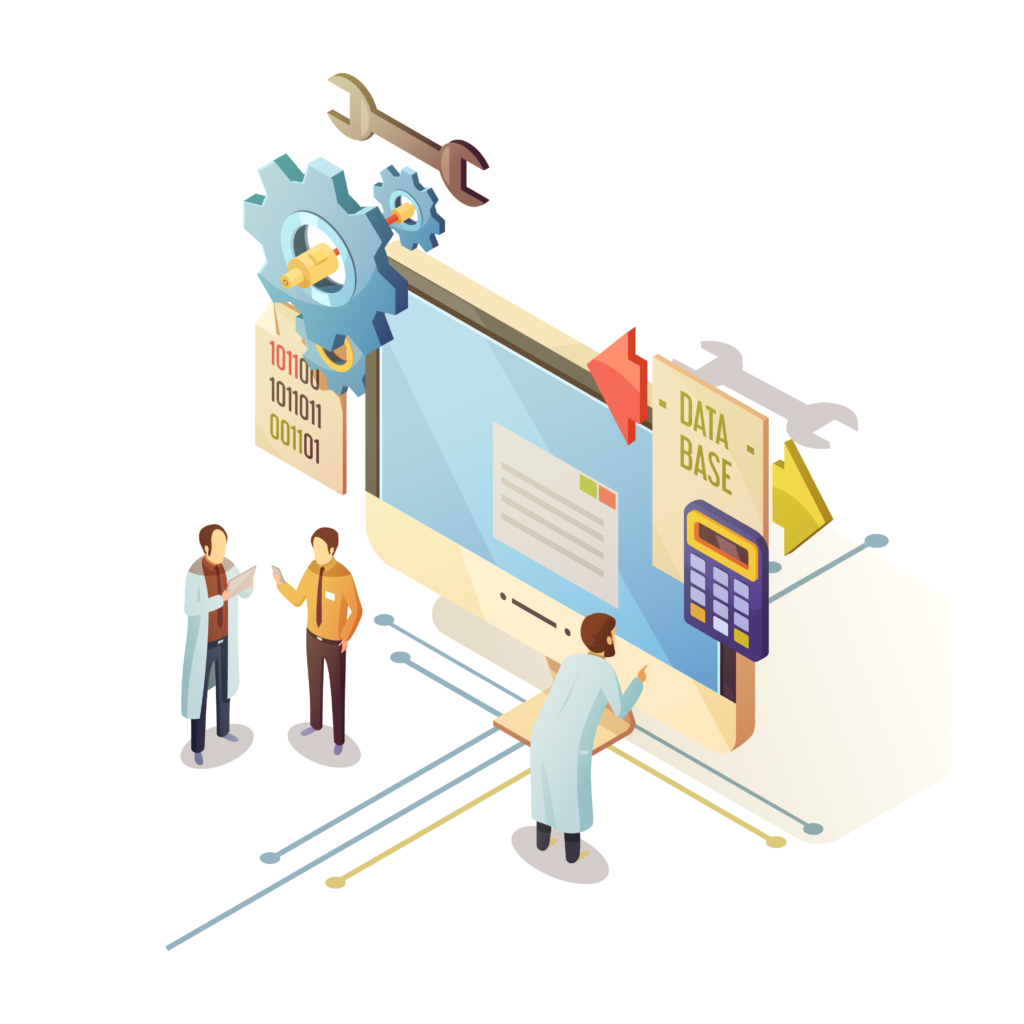The Covid-19 pandemic unleashed waves of destruction at economies of countries around the world and brought the shutters down on many businesses. Yet as we approach the two-year mark since the coronavirus reared its head and prepare to bring the curtains down on 2021, it is instructive to note that the adoption of cutting-edge technology has helped many companies to not just survive but to thrive and compete in a business environment that was already in a constant state of flux pre-pandemic.
The quantum leap in technology has facilitated the arrival of technologies that offer businesses the chance to significantly improve how they serve their customers, in addition to unlocking new insights based on Industry 4.0 (IR4.0) technologies such as artificial intelligence, big data, and automation, just to name a few. Another component of IR4.0, the Internet of Things (IoT), has revolutionised how human beings shop, as illustrated by the rise of the E-commerce industry where 10 years of growth took place in just three months, in the wake of pandemic-enforced lockdowns last year.
Digital transformation (DX) is the process of equipping your company with cutting edge technology to allow your business to operate efficiently, in addition to adding value to your company. Digital transformation entails moving your business from legacy, on-premises systems to cloud solutions, introducing the use of big data to learn about consumer behaviour, using collaborative tools for communications, and automating key processes that take painstaking hours when done manually.
The lockdowns that were imposed worldwide in efforts to curb the spread of Covid-19 further accentuated the need for companies to embrace digitisation and embark on digital transformation initiatives. Businesses who had already undertaken digital transformation were able to operate with minimum disruptions and in adherence to strict lockdown measures as they were able to permit their employees to work from home. This ensured companies who had undertaken digitisation were able to absorb the shock that the pandemic unleashed.

As 2022 beckons, and news of the new Omicron strain of Covid-19 spreads panic around the world, it is worth noting that never has the need for companies to undertake digital transformation been as important as it is now. Businesses now need to accept that Covid-19 is endemic, and “the new normal” is not just a piece of “sloganeering” by governments around the world to appease the masses, but it is a fact that we will have to live with.
In addition to continuous disruptions that come with running a business in the digital age, organisations will also need coherent strategies in place to deal with the possibilities of lockdowns and a stop-start economy. Numbers from Statista indicate global spending on digital transformation will reach US$1.8 trillion by 2022, and US$2.8 trillion by 2025. This is evidence of the acknowledgement of those in the business community that digitising their businesses is not merely a luxury to stay competitive, but is an imperative to survive.
It is telling that 58% of businesses who had taken on digital transformation early on were able to seamlessly offer digitally connected products, while that number is only 17% for recent-adopters of digitisation. Companies who had undertaken digital transformation pre-pandemic we the ones who were most successful with 75% of them saying they were able to fulfil vacancies for tech jobs during the crisis, while 67% said they had a headstart over competitors who hadn’t taken up digitisation when Covid-19 struck. Meanwhile 51% of the respondents of the same survey said growth opportunities were the primary driver of their digital transformation initiatives.
Below we look at benefits that businesses can reap by undertaking digital transformation:
Work Anywhere, On Any Device, At Any Time
The Covid-19 pandemic crippled workplaces that were operating on legacy systems as their workers were not able to work from home. It was telling that, as mentioned above, companies that had taken up digital transformation efforts dealt with the troubles of pandemic easily. Cloud solutions allow workers to work anywhere, on any devices, at any time, provided they have internet access.
Automation
The manual entry of data for businesses operating on legacy systems is the bane of executives tasked to handle these processes. Not only that painstaking hours are often spent manually keying in data, but this is also a process which is riddled with human errors. Most cloud solutions in the market today offer automation of workflows which then enable executives in companies to focus on strategic planning and growing the business
Easy Low-Code, No-Code Integrations
It is normal for businesses operating on legacy systems to have disparate solutions to manage different functions. This creates an environment where respective departments work in silos with very little collaboration. This results in a lack of visibility as the cost of integrating different systems may be prohibitively expensive. Due to the virtue of its architecture, cloud solutions are nimble and businesses can integrate different systems without having to drain IT resources. These integration solutions often require very minimal, or in most cases no coding at all.
Real-time, 360-degree Visibility of Your Business
The online nature of cloud solutions mean that, as a business, you have the advantage of having an unprecedented view of your business in real-time. This is in stark contrast to legacy systems whose updates take way too much time for a company to stay relevant in the digital age.

Robust Financial Reporting and Forecasting
If you are a business running on legacy systems and you find it increasingly difficult to keep up with the pace of transactions your business is generating, now is the time for you to undertake digital transformation and reap the benefits that come with it. Cloud financial solutions such as the enterprise resource planning (ERP) systems provide businesses with robust reporting which can forecast your finances for both the near and long term. Having these solutions in real-time also keeps you updated and alert of potential dangers that may lie ahead
Customer Relationship Management (CRM)
In a highly disruptive business environment, businesses need to have their fingers on the pulse to keep up with changing customer needs. Cloud solutions offer customer relationship management (CRM) tools that give you a real time view of your customer, in addition to keeping you updated on changing consumer trends. This allows you to respond quickly to changes and deliver top notch customer service.
Supply Chain Management
As is becoming the norm these days, hardly a day goes by without news of supply chain disruption threatening to throw a spanner on all the hard work done in the previous 18 months to get businesses up and running. In the UK, there are fears a mad scramble resulting in panic buying could lead to empty shelves during the yuletide period. In an age where Covid-19 is endemic, businesses cannot rely on guesswork anymore when it comes to managing the supply chain. Components in a supply chain such as procurement, order management, production control, and planning need to be handled by the suite of cloud solutions which offer businesses accurate forecasts of what is needed – taking into account the threat of a new Covid wave – and correctly predict outcomes to help avoid the present supply chain mess.
In a Nutshell
We live in increasingly uncertain times. Disruptions were already the norm even before the pandemic. The exponential leap in technology may have been foreseen by a few, yet its impact on society and businesses is profound. Where necessity was once the mother of invention, we are increasingly moving towards a world where the reverse is true. Invention as it may turn out, may be the mother of necessity. We did not anticipate what we would be able to do on a handphone 15 years back.
The Covid-19 pandemic brought the sort of once-in-a-generation tectonic shift to the business world, where the fittest, armed with the best in class technology survived, and the lesser lights were left to die an often painful and slow death. This has not just been confined to small businesses, in fact market disruption, coupled with the Covid-19 pandemic, and the lack of digitisation hit some of the biggest companies befitting of the “corporate behemoth” tag the hardest.
Undertaking digital transformation and leaving behind legacy systems to embrace cloud solutions is not a luxurious option anymore, it is now a bare necessity. For your business to thrive digital transformation is just the start of it all. Equipping your business with the best in class technology prepares your business to be agile. You can respond swiftly to changing consumer demands and pivot your business to different, and profitable directions based on cutting age forecasting tools. The data unearthed will help you serve your customers better. Business intelligence (BI) will help you unlock critical insights that will help you grow.
Oracle NetSuite
Oracle NetSuite is the world’s leading cloud enterprise resource planning (ERP) system, having been deployed in 40,000 companies and subsidiaries across 160 countries.
Workato
Find out how you can introduce low-code/no-code integrations to connect your system, and enable workflow automation


